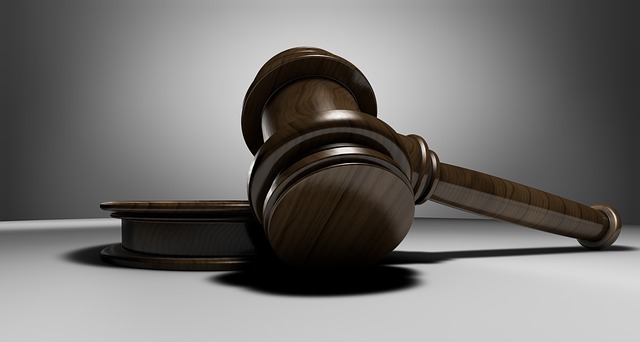Whistleblower Protection Lawsuits are a critical mechanism for employees to expose illegal activities within organizations, promoting corporate integrity and justice. Ignoring labor law violations can lead to significant fines, reputational damage, and even criminal charges for employers. Such violations, including unfair wages, unsafe conditions, and discrimination, harm employee well-being and productivity. To win a whistleblower protection lawsuit, plaintiffs must prove they reported substantial labor law breaches, leading to adverse employment actions. Businesses should proactively address these issues by establishing clear internal reporting mechanisms, conducting fair investigations, and taking prompt corrective action to avoid the severe Consequences of Ignoring Labor Law Violations.
Whistleblower protection lawsuits are crucial battles in the fight against corporate misconduct. These legal actions empower employees to expose violations without fear of retaliation, ensuring a fair and safe work environment. Understanding these protections is essential for both workers and employers alike. This article explores the rights and potential consequences of ignoring labor law violations, offering insights into successful lawsuits and strategies for businesses to foster an ethical culture, thereby avoiding serious repercussions.
- Understanding Whistleblower Protection Lawsuits: Rights and Protections for Employees
- The Impact of Ignoring Labor Law Violations: Potential Consequences for Employers
- Key Elements of a Successful Whistleblower Protection Lawsuit
- Strategies for Businesses to Prevent and Address Whistleblowing Issues
Understanding Whistleblower Protection Lawsuits: Rights and Protections for Employees

Whistleblower Protection Lawsuits are a critical mechanism ensuring employees can expose illegal activities within their organizations without fear of retaliation. These legal actions safeguard workers’ rights, empowering them to speak up against fraud, corruption, and other misconduct that may harm the public or violate labor laws. When an employee detects violations like white-collar and economic crimes, they have the right to report these issues confidentially, aiming to achieve extraordinary results in terms of justice and accountability.
Ignoring labor law violations can lead to severe consequences for businesses, including substantial fines and damage to their reputation. Protecting whistleblowers is not just about individual rights; it’s a key component in upholding integrity within companies. While general criminal defense strategies may apply, specialized legal approaches focused on whistleblower protection are often necessary to ensure employees receive the safeguards they deserve when taking on such sensitive matters.
The Impact of Ignoring Labor Law Violations: Potential Consequences for Employers

When employers ignore labor law violations, they risk facing severe consequences. These violations can include unfair wages, unsafe working conditions, discrimination, and other forms of misconduct that directly impact employees’ well-being and rights. If left unaddressed, such issues can lead to a hostile work environment, decreased productivity, and increased employee turnover.
Moreover, the consequences extend beyond the workplace. Employers may face costly lawsuits, hefty fines, and damage to their reputation. In severe cases, especially involving white collar and economic crimes, individuals responsible for these violations might even be subjected to criminal charges and jury trials. Protecting employees from such abuses is not just a moral obligation but also a strategic move to foster a positive and compliant organizational culture, ensuring long-term success for the business.
Key Elements of a Successful Whistleblower Protection Lawsuit

A successful whistleblower protection lawsuit hinges on several key elements. Firstly, the plaintiff must establish that they revealed information about a significant violation or non-compliance with federal or state labor laws. This includes white-collar and economic crimes such as fraud, embezzlement, or environmental violations. The act of blowing the whistle should be protected by law, ensuring individuals feel safe to speak up without fear of retaliation.
Secondly, it’s crucial to prove that the disclosure led to adverse employment actions taken against the whistleblower. These consequences can range from termination or demotion to intimidation and harassment. Demonstrating a direct causal link between the whistle-blowing act and the negative outcomes is essential. Additionally, the lawsuit should highlight how these actions have impacted the individual’s career and economic well-being, underscoring the profound effects of ignoring labor law violations across the country.
Strategies for Businesses to Prevent and Address Whistleblowing Issues

Businesses must adopt proactive strategies to prevent and address whistleblowing issues. One effective approach is establishing robust internal reporting mechanisms that encourage employees to come forward with concerns about potential labor law violations. This includes clear policies, confidential reporting channels, and regular training on ethical practices. By fostering an open and supportive culture, companies can deter misconduct and ensure early detection.
Additionally, businesses should conduct thorough investigations into whistleblowing allegations, ensuring fairness and impartiality throughout all stages of the investigative and enforcement process. Prompt action to address violations, coupled with transparent communication for his clients, can mitigate the severe consequences of ignoring labor law breaches. These steps are vital to maintaining compliance, preserving company reputation, and avoiding complete dismissal of all charges.
Whistleblower protection lawsuits are crucial in upholding labor laws and ensuring employees’ rights. By understanding these legal mechanisms, businesses can avoid severe Consequences of Ignoring Labor Law Violations. Employers should adopt proactive strategies to prevent and address whistleblowing issues, fostering a culture of compliance and ethical conduct. This not only safeguards their operations but also demonstrates commitment to fairness and transparency.






